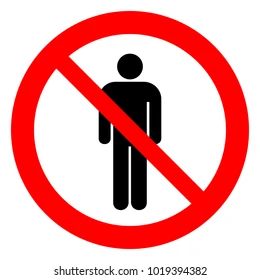Bilbo Baggins in The Hobbit
Hello! This is Quintus, and for this blog post, I reread The Hobbit, and noticed things about Bilbo Baggins which I thought I ought to share with you. Today, I will tell you about the respectable character Bilbo, including his growth through the story.
WARNING!! There are major spoilers ahead, so read at your own risk.
At the beginning of the story, Bilbo lived a comfortable, easy life. He took his wealth and privilege for granted, being quite dependent on a life of having nice, disposable things such as pocket-handkerchiefs (which are mentioned a lot in the book). Like most hobbits, Bilbo ate many more meals a day at home than we do, and was fat. After joining the dwarves on their quest to the Lonely Mountain, however, Bilbo experienced what it was like to be truly starving, at times going weeks without food. When he did have food, it wasn't nearly as delicious as the meals he ate at home before, but Bilbo was grateful to have any food at all nonetheless. Often during the journey, he wished and dreamed he was back in his comfortable hobbit-hole. Towards the end of the story, while Lake-town, the dwarves, and the wood-elves fought over the riches of the Lonely Mountain, Bilbo cared less of riches and more of peace and quiet, for both him and all the armies that were fighting. He was planned initially to claim a fourteenth of the wealth found in the Mountain (which was a LOT of wealth), but Bilbo was willing to sacrifice that claim out of the goodness of his heart to try and prevent the horrible battle that was to come. At the end of the battle, Bilbo was offered a smaller, yet still massive amount of wealth from one of the leaders who fought in the battle, but he would only accept 2 small chests of silver and gold, and even these he mostly used to buy gifts for other people. After Bilbo arrived home, Bilbo found more appreciation for the pleasures and comforts of his home, which were a great change for the better from the perilous adventure where he was grateful for even necessities of living.
Bilbo grew considerably in courage during his journey, which made him more respected by his friends. Bilbo was like most hobbits, disapproving of adventure and content with a simpler life (what he called the "Baggins" side of him), but he also had a "Tookish" side to him, as he called it, that wanted to explore the world. He first refused to leave the Shire to go with the dwarves, but he suddenly yearned to explore caves, travel through forests, and climb mountains, carrying a sword instead of a walking stick, and so he decided to go with them. Bilbo wasn't able to muster courage and therefore not helpful to the party, so the dwarves laughed at him and looked down on him. This changed when Bilbo was on his own with Gollum. Bilbo was certainly afraid, but he was able to keep his wits about him, allowing him to win the riddle competition and escape as Gollum and the goblins went after him. When Bilbo told this story, the dwarves were impressed and respected him more. By using his courage, Bilbo was able to concoct plans and strategies even in times of great danger. Bilbo was able to lure the giant spiders away from his tied up friends, so that Bilbo could free them and fight off the spiders as his friends ran. Bilbo was also able to make and carry out a plan for freeing his friends from the prison of the wood-elves. Yet his most courageous moment was when he was ordered to speak with Smaug, an evil dragon who could've killed him in an instant, and Bilbo was able to keep his wits enough to get Smaug to show his weak spot. Bilbo's courage allowed him to use his intelligence and resourcefulness to greatly help the dwarves, and earned him much respect from them.
As you have seen, Bilbo grew greatly as a character, and by the end is a character we should all try to learn from. He gains a newfound appreciation for simple things and doesn't care for gold, a fact which others admire about him, and a characteristic that is starkly different from the greedier dwarves, Smaug, and the Elvenking, among others. Bilbo also learned to use his courage along with his brain to outsmart his enemies and help his friends, gaining Bilbo his friends' trust and respect.
Thank you for reading to the end of my blog! I highly recommend The Hobbit to those interested in fantasy and adventure. The Hobbit is chronologically the prequel to The Lord of the Rings, though you don't need to read both, or need to read them in any specific order, to understand the stories.
- Quintus


I also love The Hobbit, and have found myself rereading it on multiple occasions. however, I read it last years, so forgive me if details are wrong.
ReplyDeleteOne of the things I most love about The Hobbit is, in fact, the lack of character development in certain areas. As you stated, Bilbo does grow in courage, but the way he fights is much like the 'Hobbit' way. His fight with Smeagol is not truly a fight, more so a battle of wits. Just as the Sackville-Baggins only show kindness to Bilbos face, their fight is seen as the 'petty' version of fights. Hobbits aren't actually fighting creatures, more of rumor and wit. Though we see Bilbo grow in courage, the base of his character stays the same. That's what I quite like about this book, as it is one of the very few children's books that has the theme of growing yet staying who you are at the core. At the very least, it's much more subtle here.
Great blog post! I have read the hobbit but I haven't had the chance to read The Lord of the Rings books. Would you recommend the movies of The Hobbit and The Lord of the Rings?
ReplyDelete